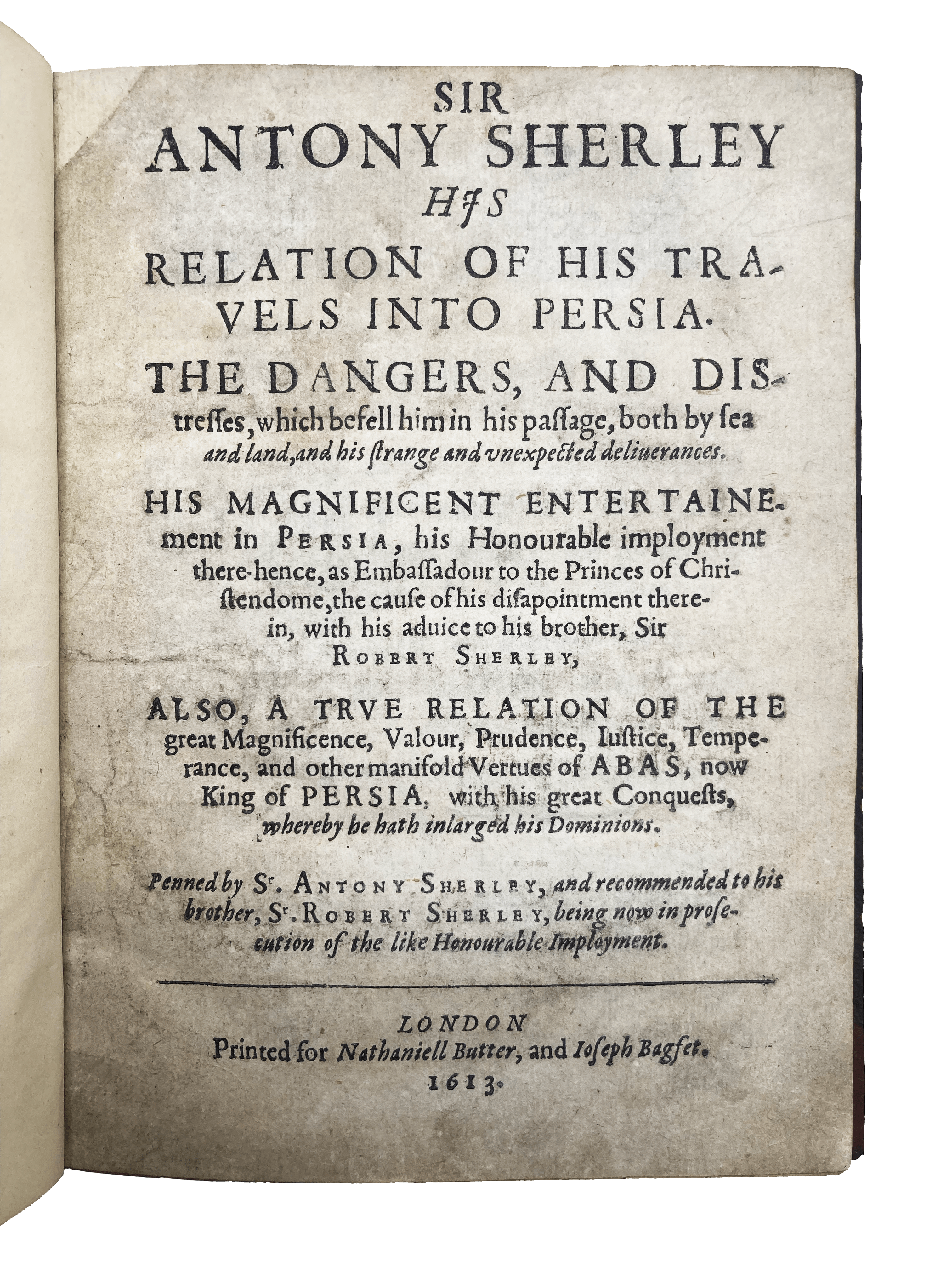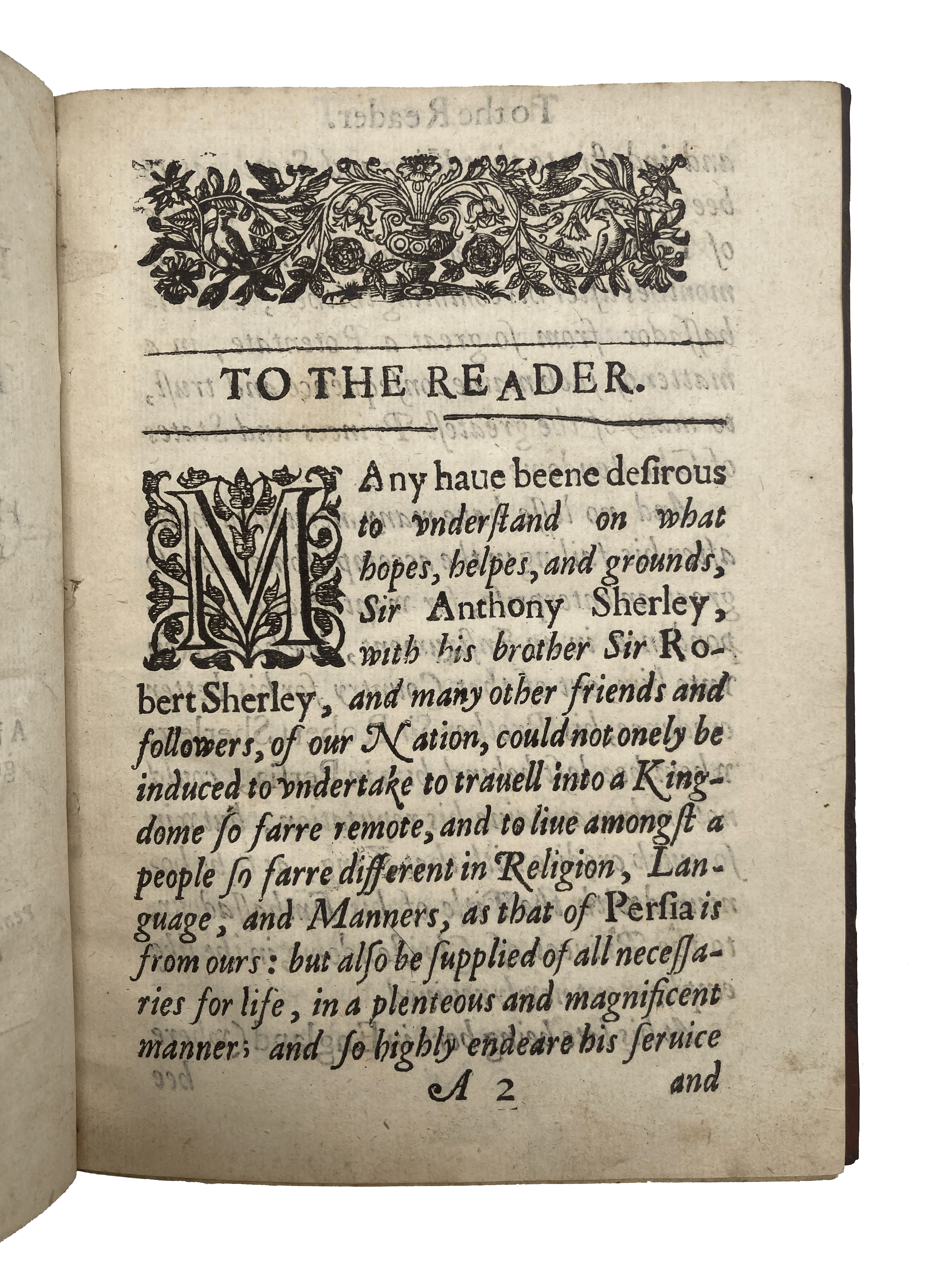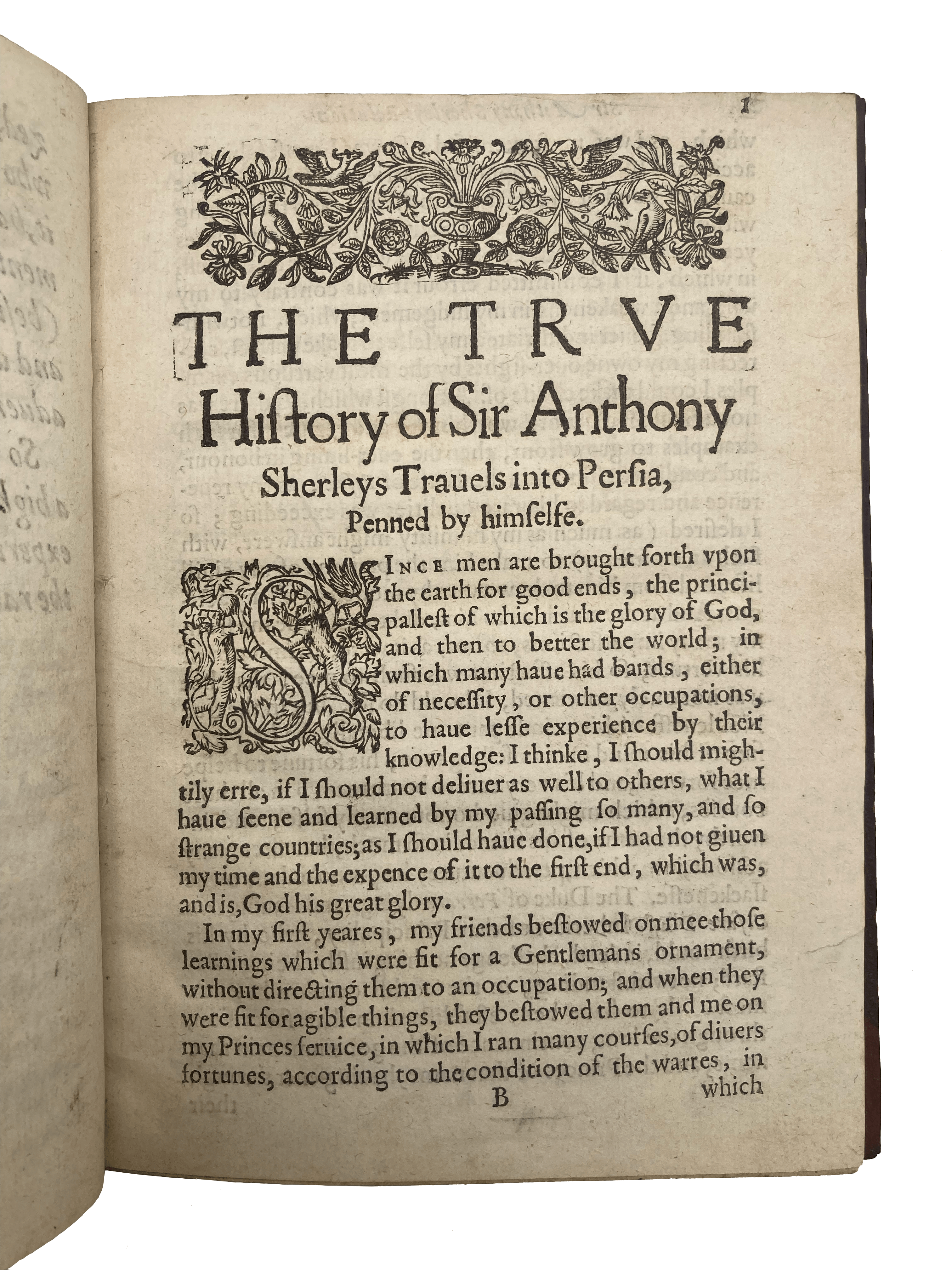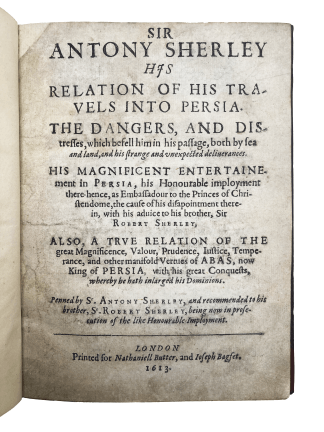SHIRLEY, Anthony.
EARLY BRITISH TRAVELLERS AND THE SHAH
Relation of His Travels into Persia.
London, for Nathaniell Butter and Joseph Bagfet, 1613.£17,500.00
FIRST EDITION. 4to. pp. [8], 139, [1]. Roman letter, little Italic. Decorated initials. Title dusty (softened) with minor repairs at blank gutter, edges trimmed a bit short. A good copy in C19 Russia, rebacked, marbled eps, armorial bookplate of William Douglas Dick to front pastedown.
First edition of one of the most influential early modern European accounts of Persia. Sir Anthony Shirley (1565–1635), the middle of the three ‘Shirley Brothers’ (with Thomas and Robert), was an English military officer and diplomat. After expeditions to West African coast and Central America in 1596, he travelled to Persia, funded by the Earl of Essex in 1598, seeking to improve Anglo-Persian trade relations and to stir the Persians to rebel against the Ottoman Empire. Upon his return, he was forbidden from entering England and stopped in Rome, where the actor Will Kempe met him, which may have inspired the references to Persia in Shakespeare’s ‘Twelfth Night’. News of his travels to Persia first appeared in print during his exile, through members of his expeditions; his ‘Relation’ appeared in print 10 years after his return, when Shirley was living disgraced and in poverty. The subtitle – ‘a true reflection of the great magnificence, valor, prudence, justice, temperance, and other manifold virtues of Abbas, now king of Persia’ – explains the real focus of the account, which sought to make the Shah a more attractive commercial and diplomatic partner for European monarchies. The first few pages recount Shirley’s travel to Persia, via Iraq, with mentions of Babylon (modern-day Hillah), Basa, and Mosul. Most of the account provides descriptions of Abbas’ government, with reported speeches in Persian (unknown to Shirley) which may or may not have corresponded to those actually made by the Shah 10 years earlier. Abbas is described as being of dark complexion, a trait which Shirley associates with masculinity and honour, in an attempt to disentangle the English public’s perception of the Persians from derogative views of black complexion. ‘As a banished servant and a proclaimed traitor, Anthony and his adventures were looked upon with great suspicion in England. Thus, in such a political scene in England, Anthony’s attempts were considered a threat to both the political stability of England and the friendly relations between the Turks and the English’ (Jahanmardi, p.48).
ESTC S117262; STC (2nd ed.), 22424. M. Jahanmardi, ‘British-Persian Relations in Shirley’s Dossier (1598-1626), unpublished PhD thesis, Univ. of British Columbia, 2014, pp.41-53.




